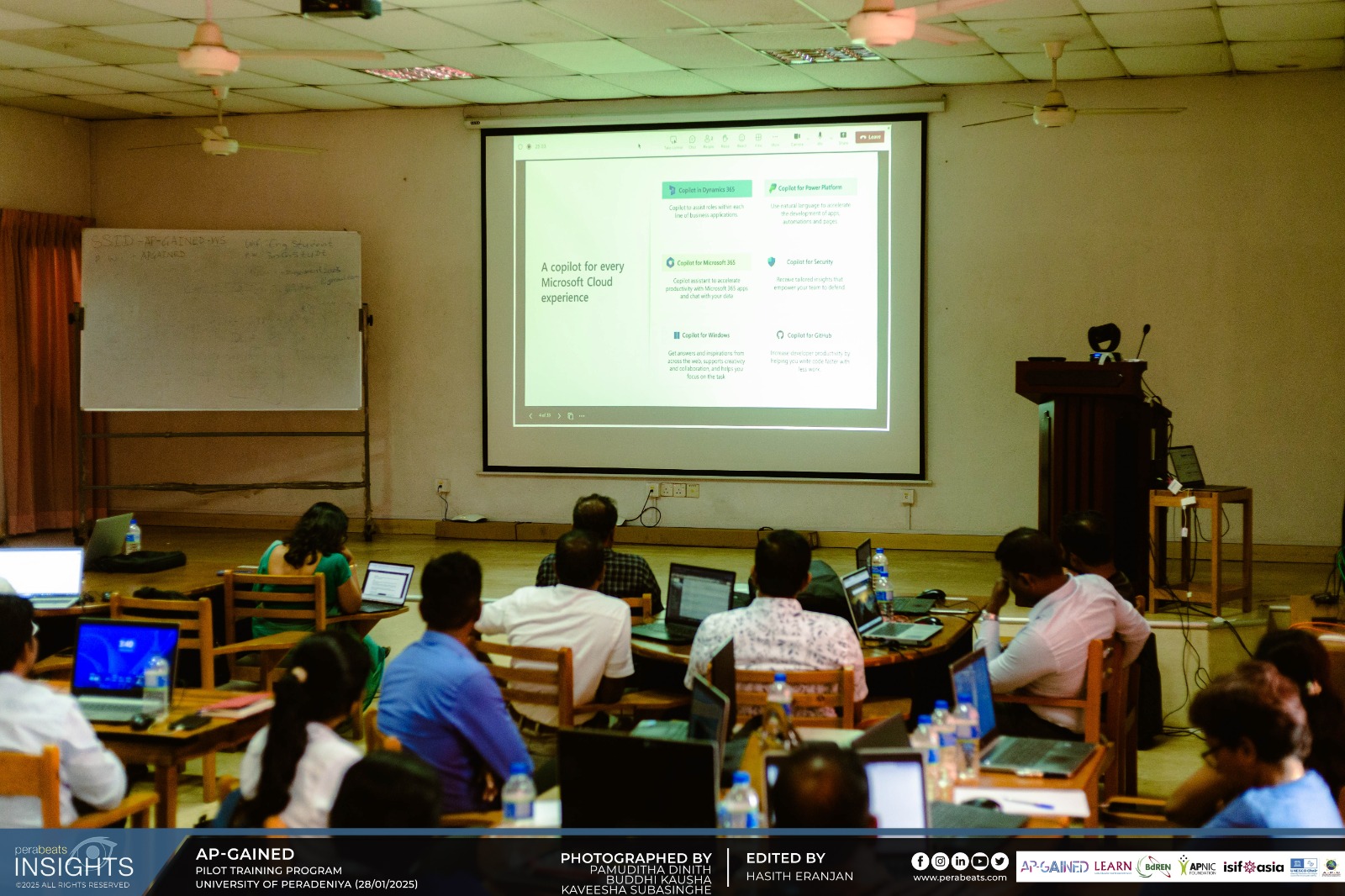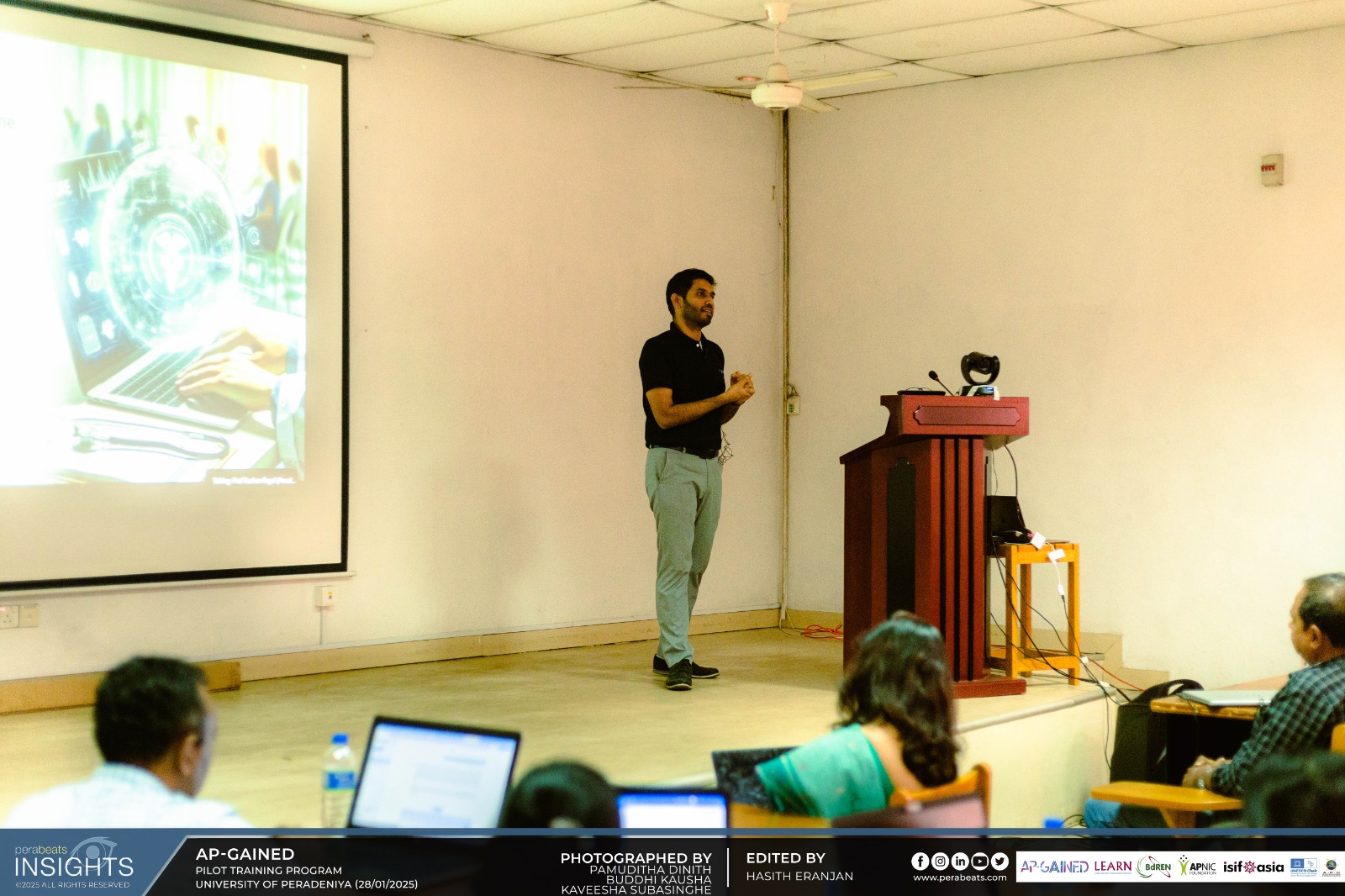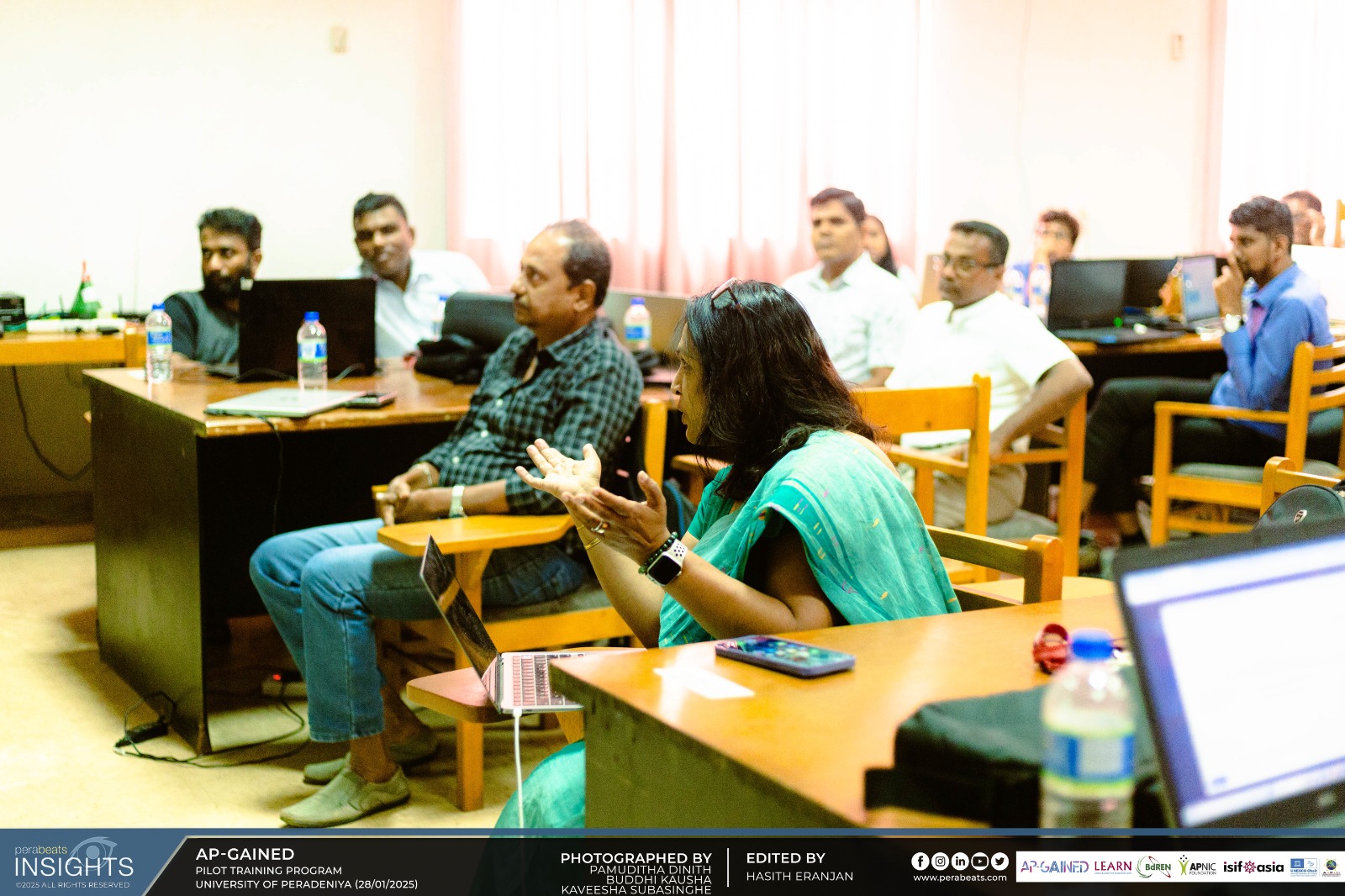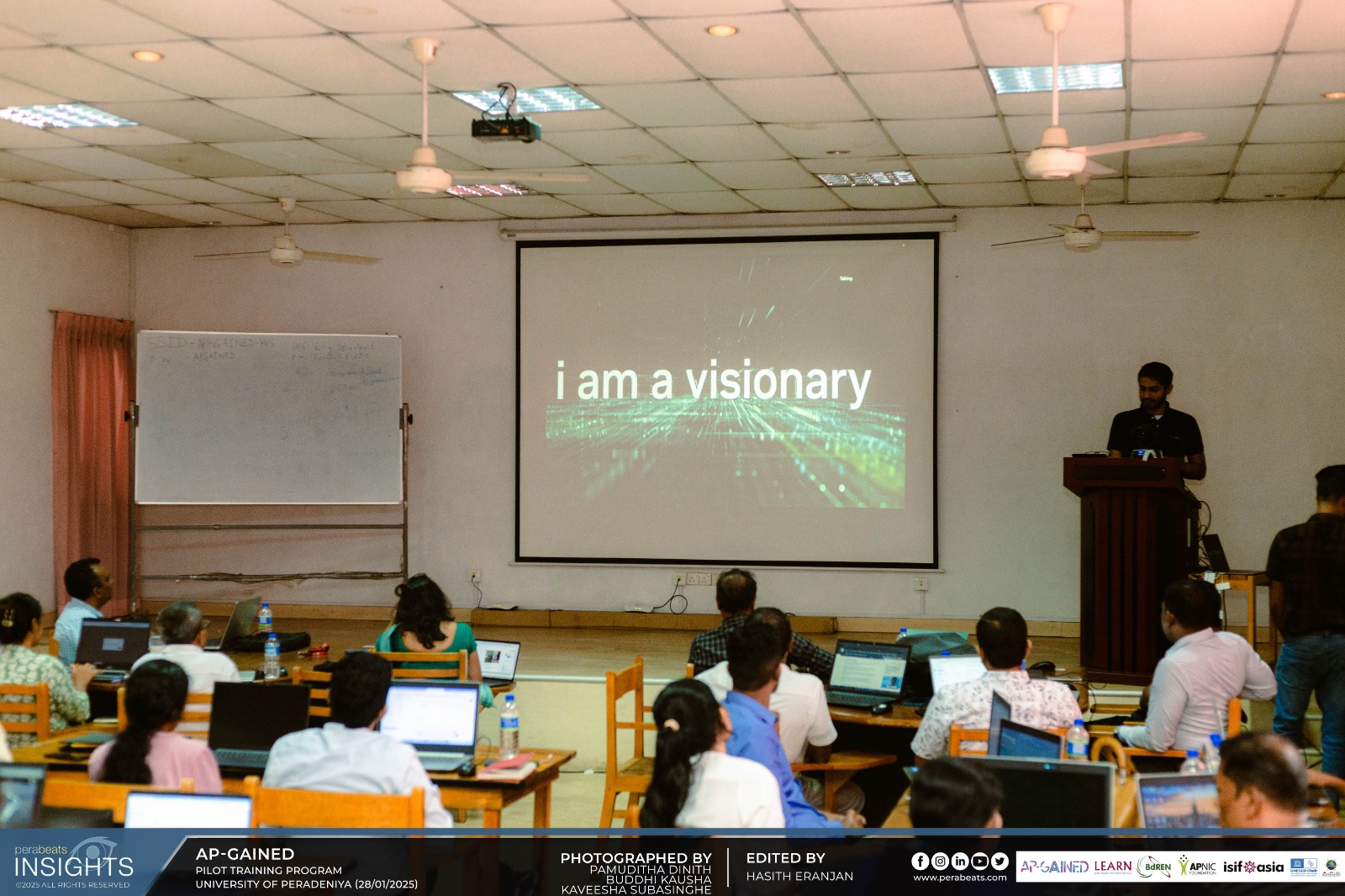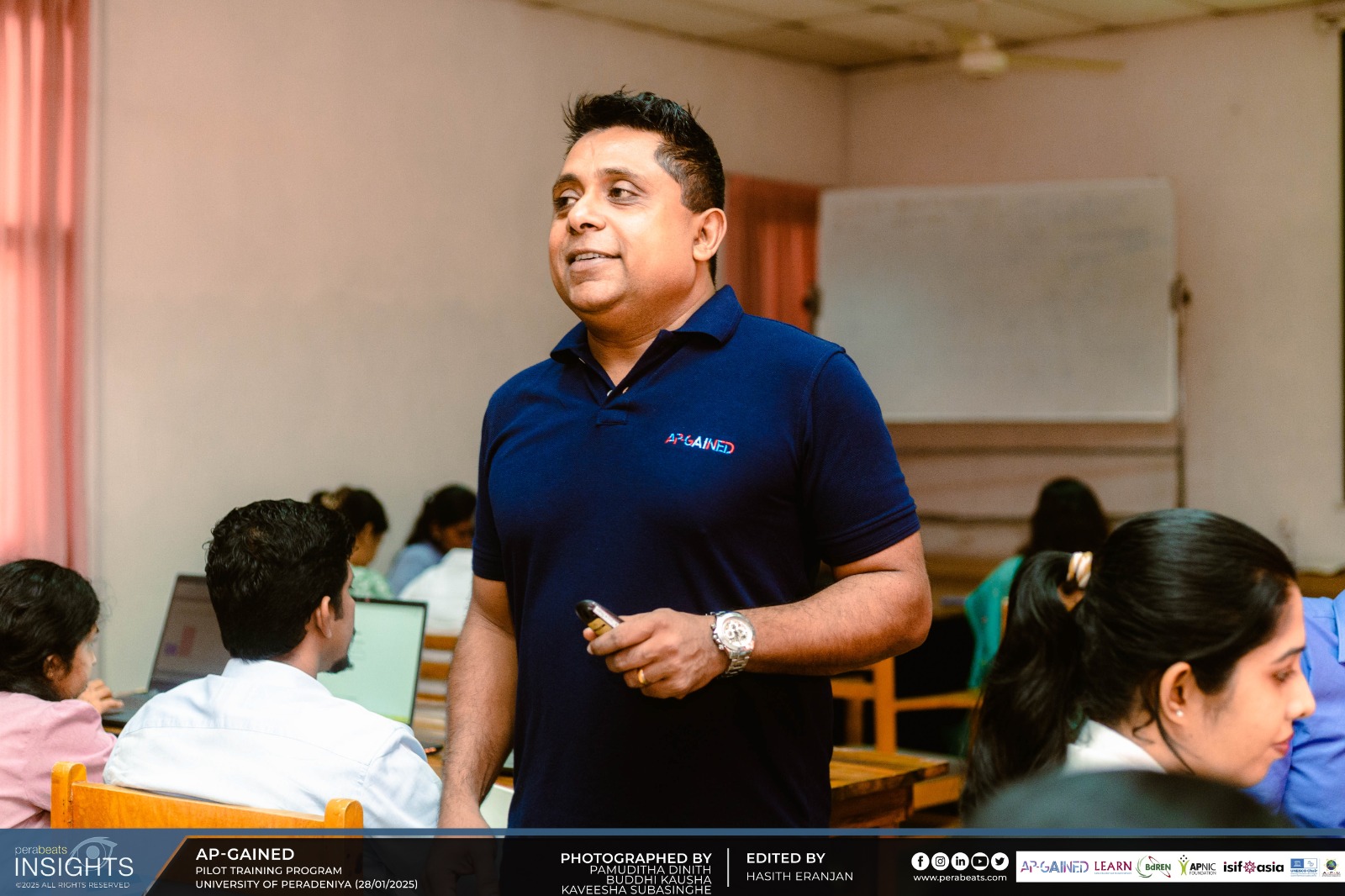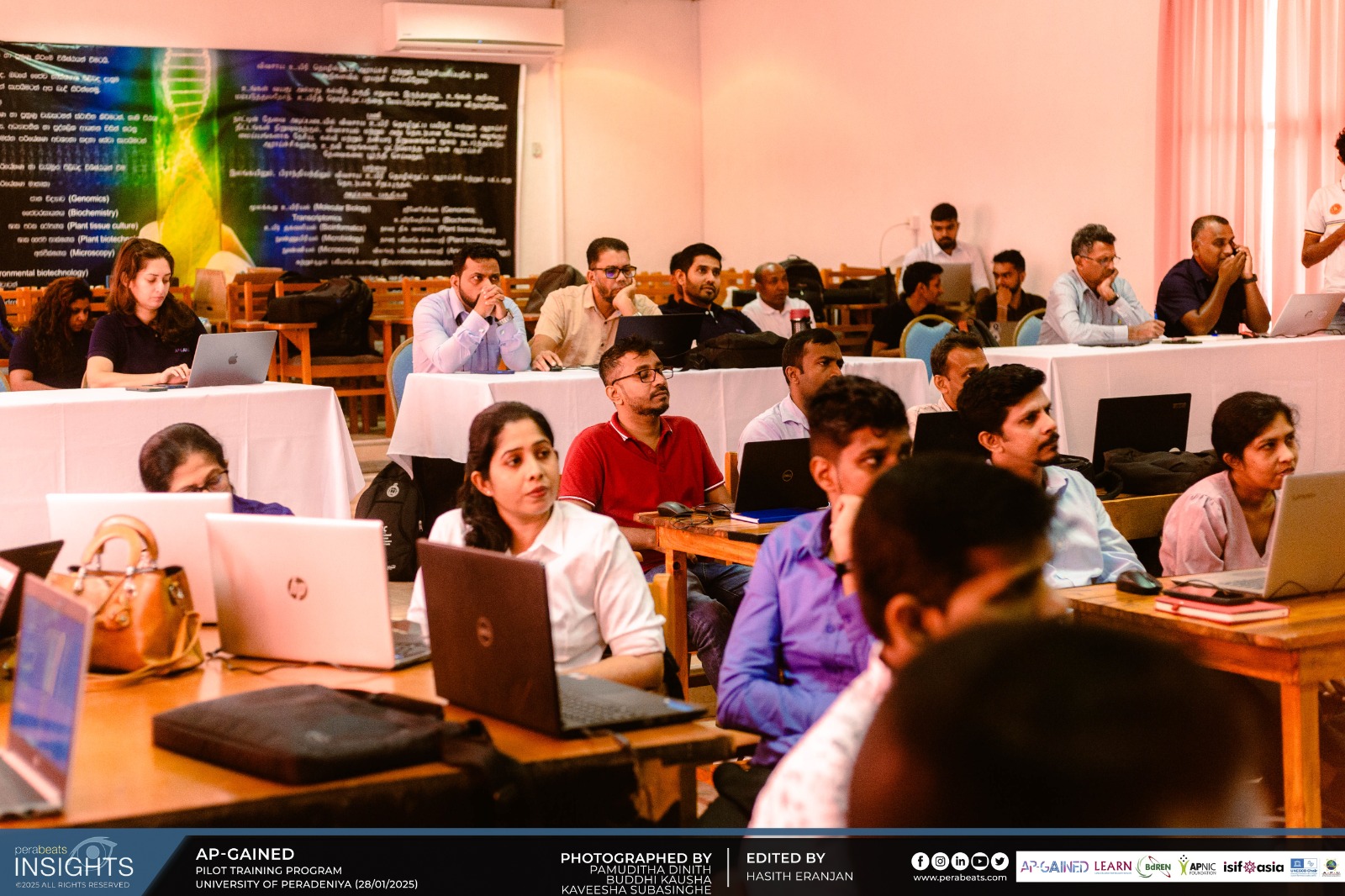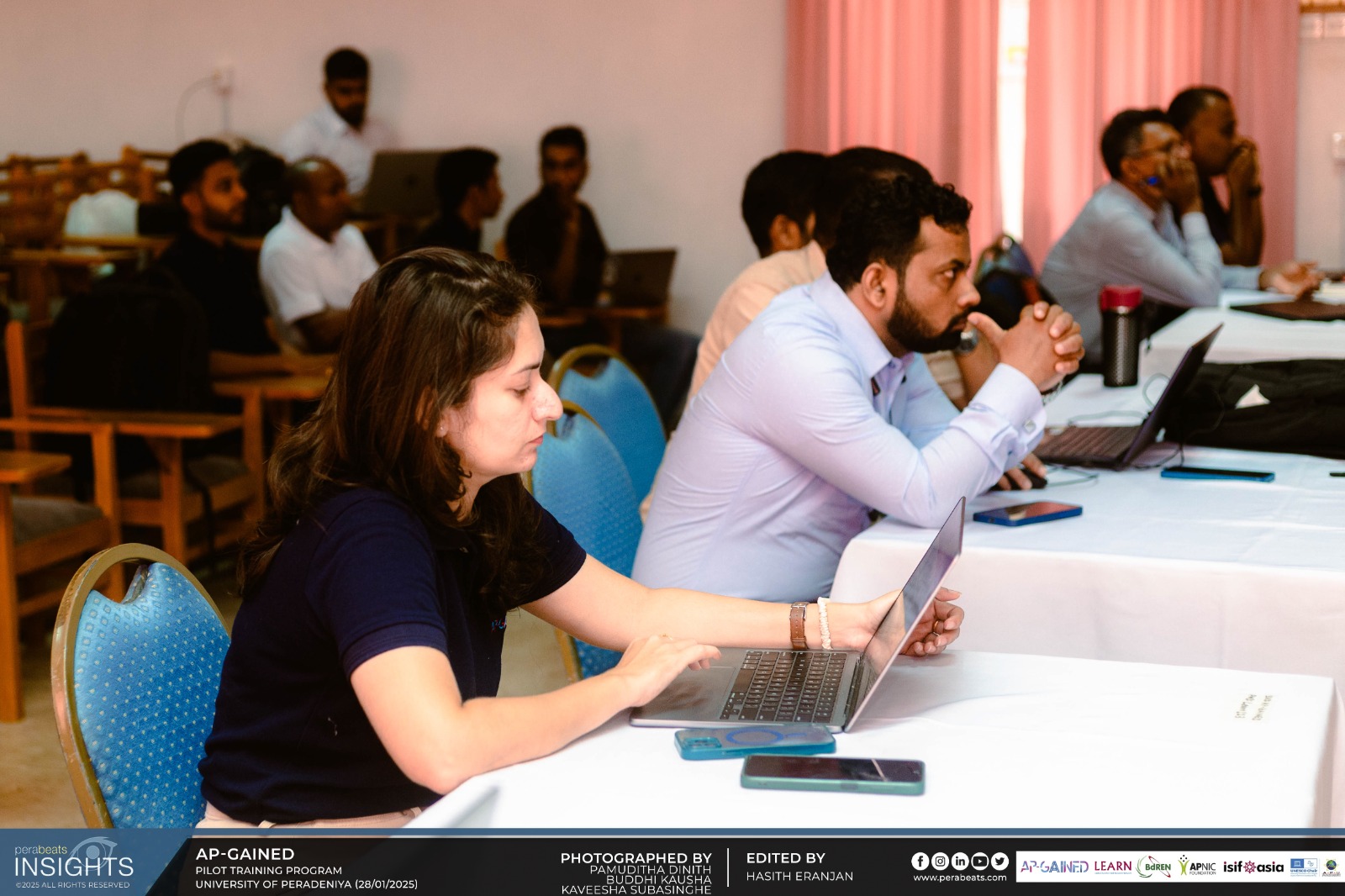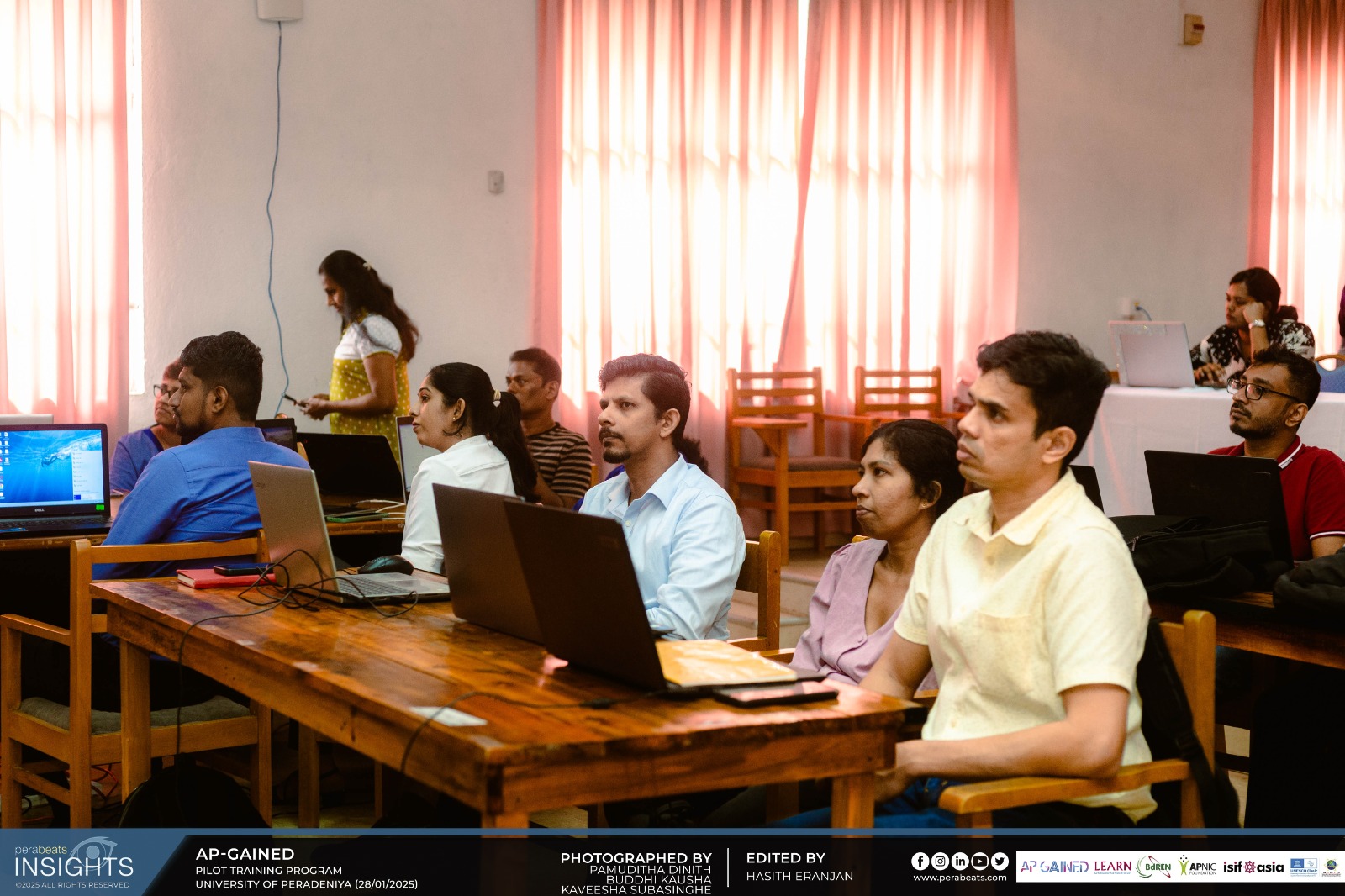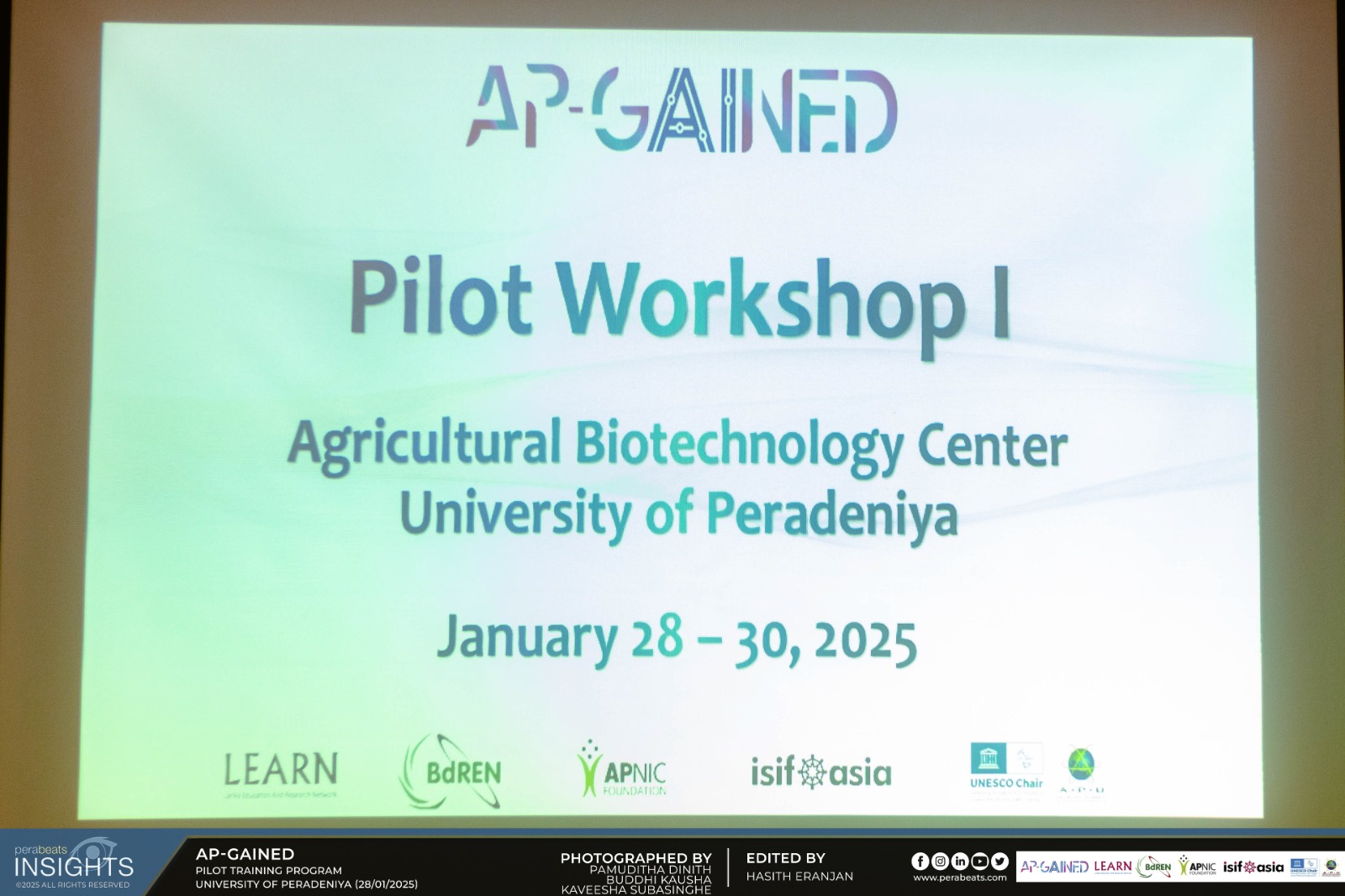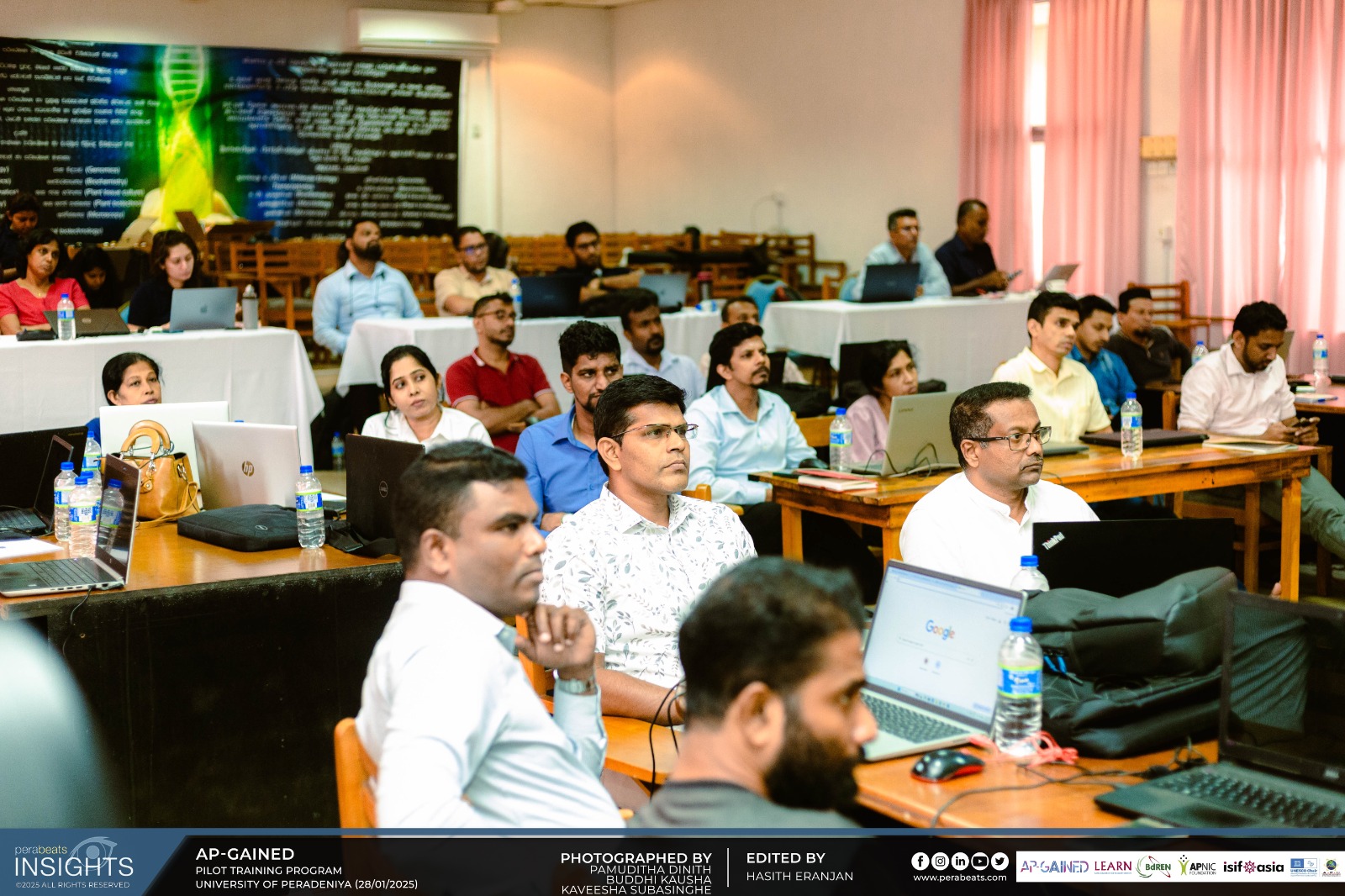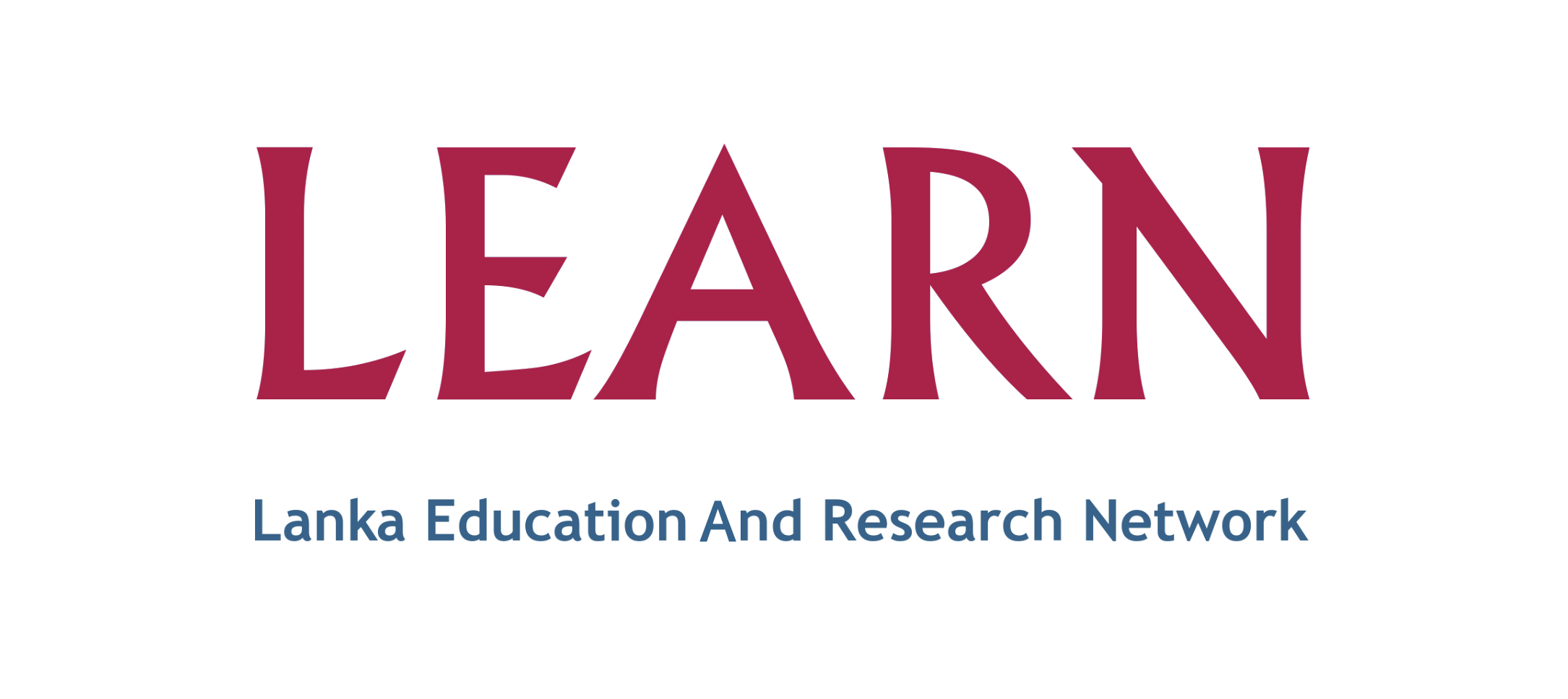2013
It is our pleasure to announce a workshop to be conducted by LEARN after long time as a kick-off for a series of workshop we are planing to do. The first workshop is going to be conducted as a joint program with the Information Technology Center, University of Peradeniya.
The intention of this workshop is to train technical officers and junior system administrators/engineers of LEARN member institutions on basics of networking engineering and network troubleshooting. The hands-on activity will allow them to experience common network technologies and its troubleshooting. This training will help participants to troubleshoot their home network and to improve the quality of service provided to the respective institution, and also to support LEARN to properly render its services to the end users.
Furthermore, we shall attempt to create a forum of technical persons of LEARN member institutions to improve the collaboration. See more...
2014
The first day of the workshop will be for the Annual NOC meeting of network engineers to meet together and then share the knowledge and experience. Engineers will present status of their local network, its services, successful stories and future development plans.
At this event, a working group will be created to work on Voice Over IP and IPv6 for the deployment of VOIP and IPV6 in LEARN Institutes.
The workshop which will be conducted together with Information Technology Center will train system administrators/engineers of LEARN member institutions to provide them better understanding of best practices of design a campus network apart from configuration of access layer, distribution layer and core layer devices. The participant will design a sample campus network at the LAB and configure it to connect to LEARN VPLS and then to commodity Internet and Academic Internet. Access control to improver the security level and network measurement and troubleshooting to raise the quality of service will also be covered.
The LEARN objective of this workshop is to help member institutions to manage their home network and to improve its quality of service to support LEARN to properly render its services to the end users. It will also create a forum of technical persons of LEARN member institutions to improve the collaboration. See more...
This in an opportunity for network/systems administrators/engineers of LEARN member institutions to experience leading network technologies and best practices in network operations, maintenance and troubleshooting. The program will also provide a good understanding of operations of LEARN network and its services.
Participant will learn implementation of a campus network including configuration of distribution layer and core layer to support both IPv4 and IPv6 and then how could such a system be properly monitored and troubleshoot. Use of VOIP technologies and Multi-cast technologies over an high performance academic network will be the main objective of the program. See more...
2015
The twenty fifth South Asia Network Operators Group (SANOG) conference will be hosted by LEARN in Kandy, Sri Lanka on 16th to 24th January 2015 in collaboration with Information Technology Center, University of Peradeniya with the support of University of Peradeniya.
This will be the forth time a SANOG event is hosted in Sri Lanka and it has been hosted twice by LEARN. For the third time it was hosted again by LEARN in January 2011 in Colombo with the support of .LK. See more...
2016
The event will be sponsored by DMS Electronics (Pvt) Ltd., Hewlett-Packard, and Aruba Networks. Information Technology Center this time also join hand with LEARN to host this event at the IT Center of University of Peradeniya.
In this three days annual NOC meeting, network engineers are going to present NOC updates since last NOC meeting 2014. They may share the knowledge and experience while presenting current status of their local network and its services, successful stories and future development plans.
The working group formed at the last meeting for the deployment of IPv6 and VOIP will meet again to evaluate the progress they have made so fay. Any issues can be discussed. Deployment of eduroam throughout the LEARN member institutions will be considered. See more...
The Graphical User Interface (GUI) of an Operating System specifically like in Linux flavor (Ubunutu, Debian, CentOS, etc) is much easier to learn than the other none-GUI interfaces, and it can serve as a starting point for learning the system. For non-programmers, the GUI is the only interface available. The GUI is also much easier to use than the programmatic interfaces, since it is easier to point-and-click on buttons than it is to write and debug code. However, when you came to deal with much customizable application usually used for network services specifically for service running on research and education networks, you may not longer survive with pointing-and-clicking on buttons on attractive GUI. One of the major disadvantages of using any GUI is that if it does not have the functionality to do what you want it to do, then you are simply stuck. Therefore you must have to look what is happening deep inside or behind what you have seen in a nice GUI. See more...
2017
We started talking about IPv6 long ago, we have been talking years and we have participated in many IPv6 training/workshops and related events. Thus everybody know what IPv6 is, it uses, how does it work and how to implement it, but have you deployed IPv6 in your campus network?. Can your end users access services over IPv6?. If you haven't done it why?
In this workshop, lets get answers to above. Quickly then review basic of IPv6, its implementation details needed to deploy in a campus network and do hands on a virtual campus network (visualized based on Cisco devices). See more..
LEARN had two workshops recently,
1. Eduroam workshop
2. Deployment of IPv6 in Campus network workshop
NOC meeting 2017 (01 day) is to review the progress you have made and to share your experience of above two. Each institute are expected to do a 10 minute presentation of the same.
By definition, the network monitoring is the use of a system that constantly monitors a computer network for slow or failing systems and that notifies the network administrator in case of outages via email, pager, SMS or other alarms. LEARN believe that no institute can run a better network without having a monitoring system. It is a basic requirement for every institute to have a monitoring system. On the other hand system admin should be able to constanly measure the real network bandwidth and it performance to make sure that the each segments of network has no bottle necks. The two days workshop covers all essentials of network monitoring and measurement needed in a Campus network. See more...
2018
The Network Security Workshop focuses on day to day activities and system components to provide comprehensive understanding and hands-on experience allowing you to gain valuable experience in network security best common practices, tools and techniques. Participants will be able to examine the key concepts, protocols and the policies involved in establishing and maintaining security for a network, and building an understanding and familiarity with their operation.
This workshop will introduce CSIRT operations from the NREN perspective and will look at the nature and structure of network attacks and the motivation that drives such on‐line malicious activity. Workshop will point out the actions and processes that can be used to identify, mitigate and respond to such attacks. See more...
Annual NOC meeting 2018 which is going to be held in the middle of December, is to review the progress you have made on deployment of Eduroam, IPv6, proper Identity stores in your campus. The meeting includes progress review, a hands-on workshop on advance use of pfSense for institutional fire-walling and visualization of inbound/outbound traffic and explanation of the procedure to register your identity provider with the LEARN identity federation.
The whole program targets the most senior network/systems engineers from LEARN member institutions. See more...
Proper identity management has become an essential part of an institutional IT infrastructure and joining to a research and education identity federation provides global exposure to the institution and also to the academics/researchers of it. Not only the new services such as video conferencing, cloud services introduced by LEARN but also hundreds of other online services such as well known library services, international laboratory services, educational microsoft / google services and easy reach of research/fellowship opportunities, etc. could be reach-out by federated identity management.
LEARN objective of this program is to train system/network engineer on how to setup and manage institutional identity and then to join with LEARN identity federation. See more...
2019
The workshop conducted by LEARN sponsored by DMS Electronics (pvt) Ltd with the support of their key partners is going to provide the best practices to properly setting up an institutional network with all its essential to monitor, troubleshoot, manage and secure. It includes network design/implementation, core layer and distribution layer configuration, NAT/fire-walling and monitoring/management.
The content of the workshop is going to be carefully narrowed down to suite the local campus networks so that it can be directly applied to their networks with lot of confidence in mind. It is simply, how you should get IPv4 and IPv6 work together for fast networking, while facilitating new technologies like eduroam, federated identity management, etc to your end users.
The program targets the network/systems engineers from LEARN member institutions. See more...
LEARN organizes one day seminar on "Facilitating Digital Conference Service to LEARN R&E Community" targeting IT Technical staff of LEARN member institutions. The target group is Systems/Network/LMS administrator from LEARN member institutions.
Digital Conferencing Facility (Zoom) received from BDREN Facilitating Distance Learning using Digital Conferencing Facility (fDLuDCf) of Asi@connect project provides enterprise grade video conferencing facility that you can use for regular meetings, conferences and distance learning/education. LEARN is going to provide a Zoom Pro account to individuals that allows to schedule/manage meetings them self.
The seminar is going to provides technical essential required for IT administrators in enabling the service to the institute and in assisting R&E staff of their home institute to make use of the service for R&E activities. See more...
LEARN organizes half day workshop on "Facilitating Digital Conference Service to LEARN R&E Community" targeting faculty and researches in faculty/institutional level. LEARN effort is to make R&E community aware of use of Digital Conferencing in R&E.
Digital Conferencing Facility (Zoom) received from BDREN Facilitating Distance Learning using Digital Conferencing Facility(fDLuDCf) of Asi@connect project provides enterprise grade video conferencing facility that you can use for regular meetings, conferences and distance learning/education. LEARN is going to provide a Zoom Pro account to individuals that allows to schedule/manage meetings them self.
The workshop is going to train faculty and researchers how to make use of Zoom in their R&E activities. See more...
2020
Digital Conferencing Facility (Zoom) received from BDREN Facilitating Distance Learning using Digital Conferencing Facility (fDLuDCf) of Asi@connect project provides enterprise grade video conferencing facility that you can use for the regular meetings, conferences and distance learning/education. LEARN provides Zoom Pro accounts for the member institutes that allows them to schedule/manage online meetings.
We are planning to conduct a three days online training to build a Zoom expertise within your institute who can train and assist your Zoom users on how best the Zoom can be used in their R&E activities. The nominee can be an IT personnel or an academic staff who agree to conduct one or more program to train your Zoom users soon after this program. See more...
In an emerging academic network, having an identity for each user with a proper identity management is a crucial need, since there are numerous applications around the globe that will enable academics to ease their research and education activities. LEARN Identity Access Federation (LIAF) is to support world-wide academic services through eduGAIN and services introduced by LEARN itself.
The recently introduced enterprise grade Zoom video conferencing facility which enables academics and other staff to host (schedule and manage) their own meetings/webinars themselves has also to be accessed over LIAF. See more...
LEARN provide easy access to different User Applications via academic networking. To introduce some of them to the end users, LEARN will be hosting a two hour webinar for free of charge detailed are as follows,
Topic: Online Seminar on R&E Tools and Applications powered by LEARN
Date and Time: 23 September 2020 @ 3.00PM - 5.00PM ( GMT +5.30)
Venue: Online See more...
2021
Accessing services through the LEARN Identity Access Federation (LIAF) should be familiar to everybody. The way that you access the LEARN Zoom service is over the LIAF. Similarly, there are quite lot of R&E services around the world that you can access them over LIAF using your institutional credentials. The infrastructure required for your institution to get access to those services while being a member of LIAF should already be in place.
This workshop is not going to train you on setting up Identity Access Management in your campus. But it should train you how you could enable services for R&E community that can be accessed over the LIAF.
- Venue: Online - over Zoom VC
- Duration: 3 days
- Class size: 60
- Target group: IDP admins, Programmers, System Analysts from LEARN member institutions (one who deals with the campus network IAM Infrastructure)
- Program Level: Advanced
- Course fee: free of charge
- Date: 5th to 7th April 2021
Note: You are expected to early setup two Ubuntu instances in your campus. They have to have the internet connectivity and you should be able remotely login to them. Guidance to setup them will be given on following pre-workshops
First Pre-workshop online meeting: 29th Mar 2021 at 10.00AM
Second Pre-workshop online meeting: 31th Mar 2021 at 10.00AM
More detail about the workshop can be found here.
You can relax a bit, when your campus network and its services running properly, but fear of an unexpected failure somewhere is always on your head. Hence keeping eye on every devices and application services around the clock could be very hard. A well setup tool set could ping you when something went wrong.
The workshop will train you, how you could setup a free open source monitoring tool set to monitor your network and its services while alerting you when something went wrong. See more...
2022
The workshop targeting institutional network administrators is to examine the today's essentials of a campus network. It should build up the knowledge needed for IPv6 capability, building none blocking paths linking cloud services, monitoring and performance tuning of a campus network.
The knowledge gained from the training should help network administrator to revisit their network topology to do necessory adjustment for its best use while implementing a monitoring/troubleshooting tool set.
The program targets the network/systems engineers from LEARN member institutions.
- Venue: Online Via Zoom
- Duration: 4 daysClass size: 60
- Target group: Network/Systems engineers from LEARN member institutions (one who deals with the campus network)
- Program Level: Intermediate
- Course fee: Free of charge
- Date: 25th April 2022 to 28th April 2022 See more...
Optimizing network performance is a key part of tuning up a campus network. The metrics of the network performance include latency, packet loss, jitter, bandwidth, and throughput. The figures can be measured regularly or occasionally where your network perform as desired is extremely important. Such measurements should further help you to detect device/service overloading, network bottle-necks, flooding and any unusual behaviours.
Apart from, have you documented your network in a digital means?. Means do you have an inventory of your network devices/servers with their detail such as brand/model, firmware version, IPs assigned, number ports available/used, date of purchased, warranty status and how their ports connected to varies other devices and to down/up links. Further how is your network cable infrastructure connected here and there. See more...
Linux is known to be the most assential platform of a campus IT infrastructure. Most of the IT service applications such as web, email, identity management, LMS, Library systems, etc have to be run on Linux to get their best performance. Being it is free opensource, Linux and the most of it softwares/tools have become only the solution for state accadamic institutions which have to be run on a very low budget.
Therefore, this workshop "Campus Systems Linux Essentials" is going to train institutional IT team on how they get the maximum out of free open source Linux and its softwares/tool sets.
The program targets the network/systems engineers from LEARN member institutions
- Venue: Physically at Information Technology Center, University of Peradeniya
- Duration: 5 days
- Class size: 60
- Target group: Network/Systems engineers/operators of data networking (one who deals with the campus network/IT infrastructure)
- Program Level: Beginer/Intermediate
- Course fee: free of charge
- Date: 28 November 2022 to 02 December 2022 See more...
2023
Identity access management should be one of the most important component in a Campus IT infrastructure. It allows teachers and students to access in house IT services as well as many world wide on line educational services using their own campus credentials that it is usually known as Single Sing On (SSO) access.
Most of the local campuses are now doing their own identity access management at least to get access to the LEARN Zoom. However it is yet to be assured that it is being used for many other services available around the world. See more...
Workshop overview
Containerization has become a pivotal technology in the modern IT landscape, and while it's often associated with software developers, its implications and benefits extend to network engineers as well.
As containerization continues to gain traction, network engineers who understand its intricacies will be better equipped to design, secure, and manage modern networks. It's not just about staying relevant; it's about being prepared for the future of networking. This intensive three-day course equips university IT engineers with essential knowledge and hands-on experience in containerization, focusing on Docker and Kubernetes. Participants will delve into the core concepts of container technology, explore Docker's components, and harness Kubernetes' orchestration capabilities. Real-world scenarios and labs will provide practical insights into building, deploying, and managing containers. See more...
2024
Gen - AI is an innovative AI that can unlock endless possibilities. Our workshops will equip you with the skills to revolutionize education and impact Sri Lanka and the world.
Description
The AIDE workshops, conducted under the auspices of the UNESCO Chair at Asia Pacific University (APU) of Malaysia, are designed to significantly enhance the pedagogical and research capabilities of educators through the effective integration of Generative AI (Gen-AI) tools. Each of these workshops will be conducted over four days, each day dedicated to specific modules. See more...
Overview
Security is important for keeping things safe online. his workshop aims to delve into fundamental concepts, protocols, policies, and methodologies essential for safeguarding data and assets from potential cyber threats. You'll learn about making networks strong and safe, and how to spot and fix problems.
By the end, you'll know how to find and fix security issues in networks, and keep an eye out for any bad things happening. See more...
"Campus Wifi" refers to a wireless network infrastructure implemented within educational institutions such as colleges, universities, and research institutes to provide internet connectivity across their premises. This network enables students, faculty, and staff to access online resources, educational materials, research databases, and communication platforms conveniently from various locations on campus. The Campus Wifi network typically requires users to authenticate their access, often through a username and password, ensuring security and regulating network usage. It plays a pivotal role in modern education, facilitating seamless collaboration, research, and communication within the academic community. See more...
2025
The AP-GAINED Pilot Training Workshop is conducted from 28th to 30th January 2025 in Peradeniya, Sri Lanka. This workshop offers a unique and transformative opportunity for professionals (both academic and non-academic) from LEARN member institutions to master Generative AI technologies.
This program is designed to empower technical and non-technical staff in IT, administration, finance, communications, marketing and related roles by providing practical, hands-on experience with Generative AI tools to enhance operational efficiency and foster innovation. See more...
LEARN offers a centrally hosted, Free and Open Source Software (FOSS) cloud platform as a value-added service at no additional cost to its connected member institutions (excluding private institutions). This platform provides a suite of tools to support academic content creation, delivery, and collaboration. The available services include: See more...
LEARN offers a centrally hosted, Free and Open Source Software (FOSS) cloud platform as a value-added service at no additional cost to its connected member institutions (excluding private institutions). This platform provides a suite of tools to support academic content creation, delivery, and collaboration. See more...
2026
To be added
Latest Event - AP-GAINED Pilot Training Workshop
